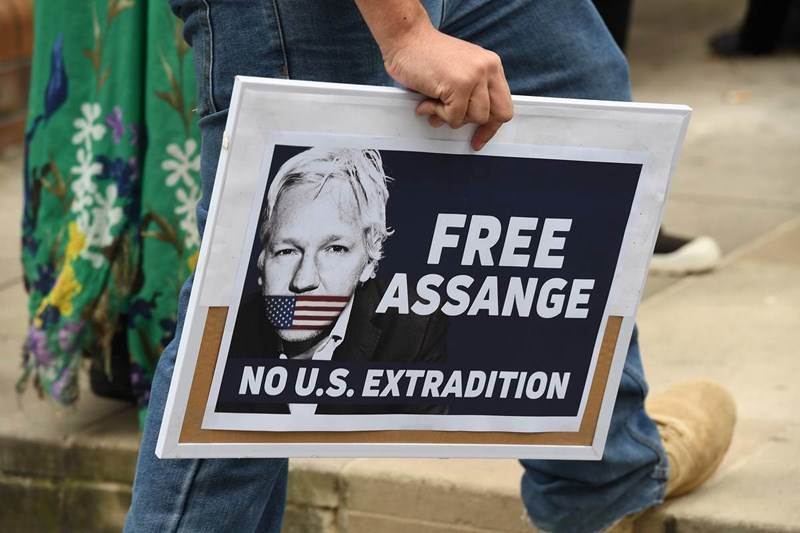Julian Assange suffers stroke during court appeal, fiancée says
WikiLeaks founder Julian Assange suffered a stroke in Belmarsh Prison during a High Court appearance via video link, his fiancée Stella Moris says.
-

WikiLeaks founder Julian Assange suffers a stroke in prison
While appealing against his extradition to the US, WikiLeaks founder Julian Assange suffered a stroke in Belmarsh Prison during a High Court appearance via video link, his fiancée Stella Moris says.
"Julian Assange suffered a stroke on the first day of the High Court appeal hearing on October 27th. He needs to be freed. Now," Moris said on Twitter.
BREAKING: Julian #Assange suffered a stroke on the first day of the High Court appeal hearing on October 27th.
— Stella Moris #FreeAssangeNOW (@StellaMoris1) December 11, 2021
He needs to be freed. Now. #FreeAssange https://t.co/yNg8HGUoAD
Doctors had confirmed that Assange suffered a stroke on the morning of his latest hearing, WikiLeaks said on Twitter.
According to the Daily Mail, the stroke caused Assange a drooping right eyelid, memory problems, and signs of neurological damage. He has undergone an MRI scan and is now on anti-stroke medication.
"Julian is struggling and I fear this mini-stroke could be the precursor to a more major attack. It compounds our fears about his ability to survive the longer this long legal battle goes on," the Daily Mail quoted Moris as saying on Saturday. "I believe this constant chess game, battle after battle, the extreme stress, is what caused Julian's stroke on October 27," she said.
Earlier, the US government overturned a block on the extradition of WikiLeaks founder Julian Assange from Britain to face trial for publishing top-secret documents exposing war crimes perpetrated by the US and its allies across the globe, especially Afghanistan and Iraq.
The sentence came after the US government made an appeal against a decision not to extradite WikiLeaks founder Julian Assange from the United Kingdom.
In its turn, Freedom of the Press Foundation has urged the US Department of Justice to terminate its pursuit of prosecution of Assange and commit to not using the Espionage Act against journalists and their sources, amid rising concerns over the journalist's health and the inhumane conditions he could face in the American prison system.

 2 Min Read
2 Min Read










